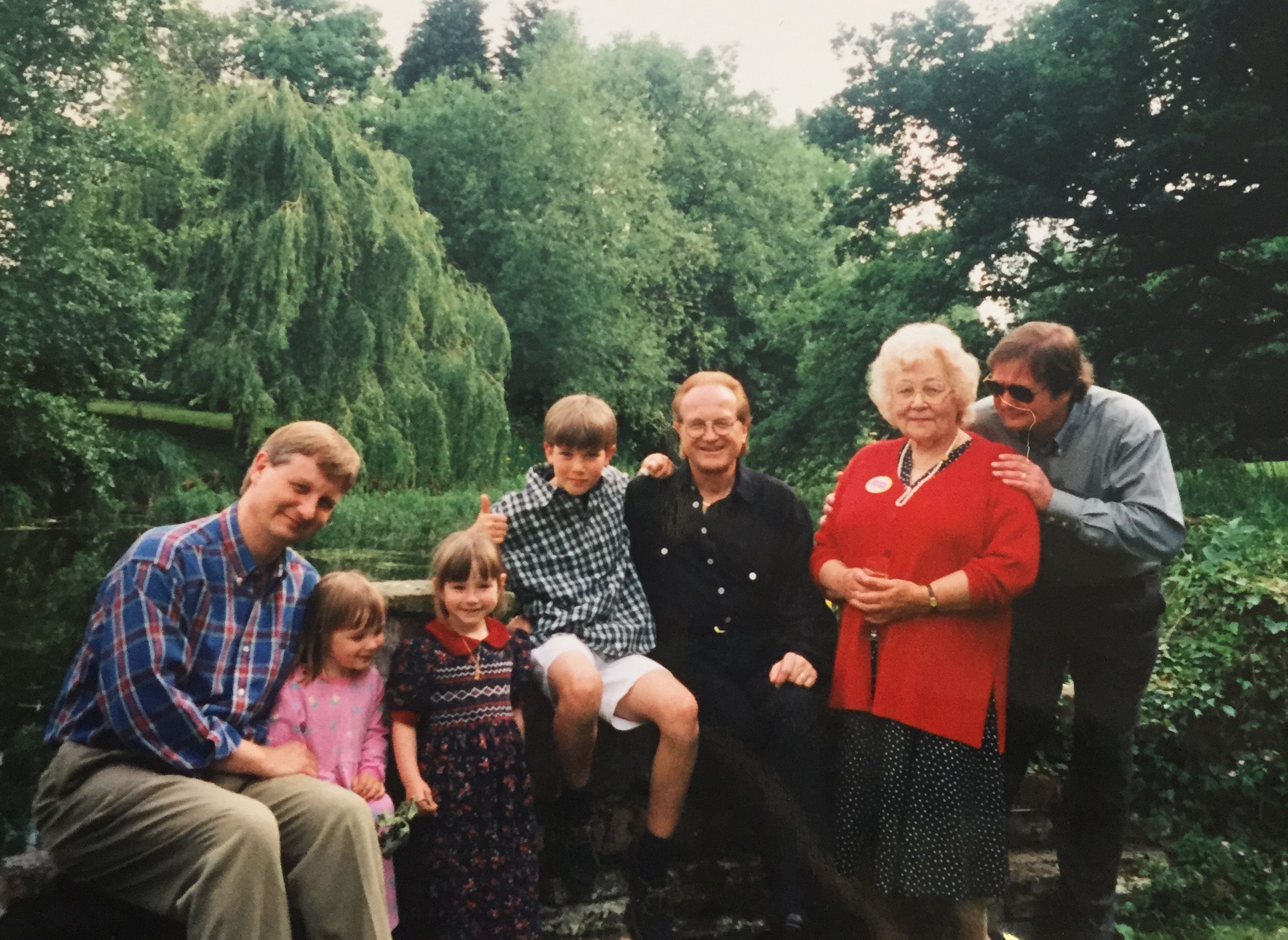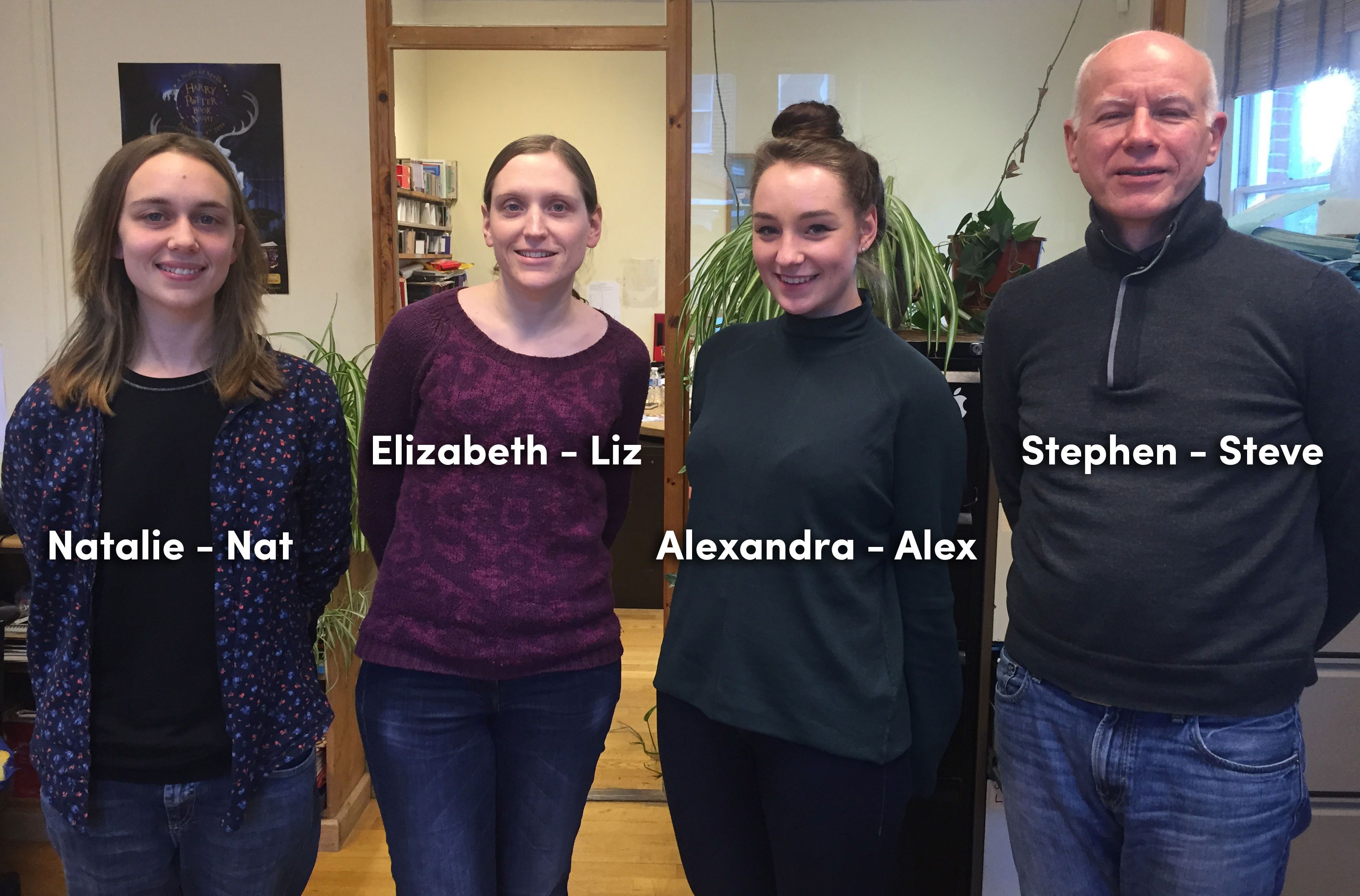How did you get your surname?
Do you know how you got your surname?
It is regarded as a tradition for women to take their husband’s surnames when they get married in Britain. It’s also the tradition for men to always be Mr but women will be Miss until they’re married and become Mrs. So if Miss Young married Mr Smith, she would become Mrs Smith. A survey in 1994 showed that 94% of British women decided to take their husband’s surname when married. This ‘tradition’ is no longer as common today, with many women choosing to keep their own surname, or creating a double-barrelled surname.
In Poland many women choose to take their husband’s surname when they get married. However, they have masculine and feminine endings to their surnames. My surname – Koszykowska – like many Polish names ends in ‘ski’ for males or ‘ska’ for females; my dad follows this rule, as does one of my uncles, but the other uncle keeps its simple by using ‘ski’ for his family. It’s thought that originally Polish surnames ending in ‘ski’ or ‘cki’ came from the places where people lived; so if you lived in Wola you would become Wolski.
In Iceland the family name reflects the immediate father’s name or in some cases the mother’s. This is a more complex way of creating a surname compared to the British tradition. If Jón Einarsson had a son called André, André’s surname wouldn’t be Einarsson; instead it would be Jónsson. This is a combination of his father’s first name ‘Jóns’ (the s indicates that he is literally Jón’s son) and the Icelandic word ‘son’. If Jón had a daughter her surname would be Jónsdóttir, dóttir being the Icelandic word for daughter. In some cases they may use the father’s middle name, or their grandfather’s name.
In Spain it’s the norm for children to take the surname of the father and their mother’s maiden name to form one surname. For example if Alejandro López marries Daniela Rodriguez, their child Paula will take the father’s surname López as their second name and their mother’s Rodriguez as their third; Paula López Rodriguez. Then it gets slightly more confusing: if Paula marries she won’t change her surname; instead she will add it to her name. For example, she marries Álvaro Arroyo; her name will become ‘Paula López Rodrigues de Arroyo’. This continues when Paula has children, her mother’s surname will be dropped from their surnames to become ‘López Arroyo’.
Is there an interesting story behind your surname? Let us know!
Alex
What’s in a name?
Welcome to my family! My Grandma’s called Minnie, and my Granddad’s called Jack.
Except, they’re not really.
Because, in English, we have an eccentric tendency to distort names until they no longer resemble the original at all. My Gran’s actually called Mary and my Granddad, of course, is John.
Now meet my Uncle Bob, cousins Harry, Bill and Jim, and aunts Kitty and Nancy. Their real names – the names on their birth certificates – are Robert, Henry, William, James, Katherine and Anne. Makes total sense, right?
Some common English names have not one but several permutations, just to make things more confusing. The name Edward can be twisted into Ed (OK, fine), Ted (hmm) or Ned (well….), whilst Robert can be not only Bob but Rob, Bobby or Bertie. James can be Jim, Jimmy or Jem, and Richard can be Rich, Rick, Dick or Dickie.
On the girls’ side, Elizabeth must be one of the most prolific of names, producing not only Eliza, Liz and Lizzie, but Ellie, Beth, Bess, Bett and Bettie, whilst Margaret becomes Maggie and Meg, or Peggie and Peg. Victoria becomes Vic, Vicky, Tor and Tory, and Mary can be Molly, Minnie, Polly or Poll.
It’s not just our language that does this, of course, and Russian is another which can mutate its names into seemingly unconnected variants. When I was in Russia, my friends were Tolik, Vanya, Sanya and Masha, whose real names were Anatolii, Ivan, Alexsandr and Mariya. But whereas in English a Rob might always be a Rob, both in private and public arenas, formal and informal, in Russia someone might be called Alexandr in formal situations but Sasha with friends – and Sanya, Sanka or Sashenka for extra familiarity and affection.
My name, Natalie or Natalia, was used formally, but to most acquaintances I was Natasha, and to closer friends I would sometimes be Nata, Natashenka, Natusik or Natusyenka. Alekseii becomes Alyosha or, more colloquially again, Alyoha, Lyosha or Lyoha. Dmitrii become Dima, Dimka (the -ka ending adding another level of diminutive to the already familiarised Dima), Mitya or Mitka. Evgenii becomes Zhenya and Sergei becomes Seryozha.
Of course, if you have a bit of time in Russia then the aim is to collect a group of friends with the following rhyming names: Masha, Pasha, Dasha, Natasha and Sasha. And, because of the popularity of the names Mariya, Pavel, Natalia, Dariya and Alexsandr, that’s not as hard as it seems!
We’d love to know about other languages that mangle their names!
Nat


